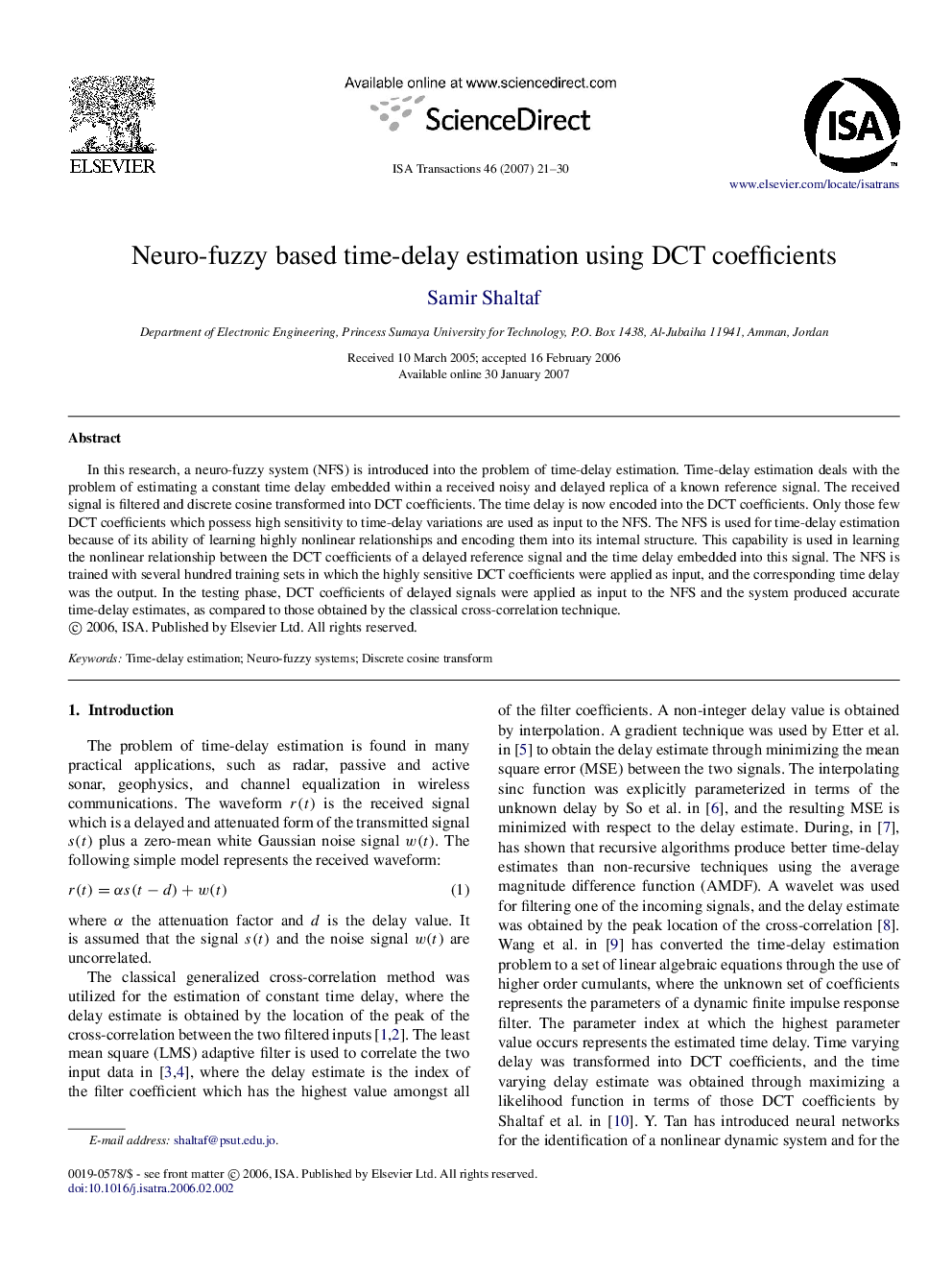| Article ID | Journal | Published Year | Pages | File Type |
|---|---|---|---|---|
| 5005454 | ISA Transactions | 2007 | 10 Pages |
Abstract
In this research, a neuro-fuzzy system (NFS) is introduced into the problem of time-delay estimation. Time-delay estimation deals with the problem of estimating a constant time delay embedded within a received noisy and delayed replica of a known reference signal. The received signal is filtered and discrete cosine transformed into DCT coefficients. The time delay is now encoded into the DCT coefficients. Only those few DCT coefficients which possess high sensitivity to time-delay variations are used as input to the NFS. The NFS is used for time-delay estimation because of its ability of learning highly nonlinear relationships and encoding them into its internal structure. This capability is used in learning the nonlinear relationship between the DCT coefficients of a delayed reference signal and the time delay embedded into this signal. The NFS is trained with several hundred training sets in which the highly sensitive DCT coefficients were applied as input, and the corresponding time delay was the output. In the testing phase, DCT coefficients of delayed signals were applied as input to the NFS and the system produced accurate time-delay estimates, as compared to those obtained by the classical cross-correlation technique.
Related Topics
Physical Sciences and Engineering
Engineering
Control and Systems Engineering
Authors
Samir Shaltaf,
